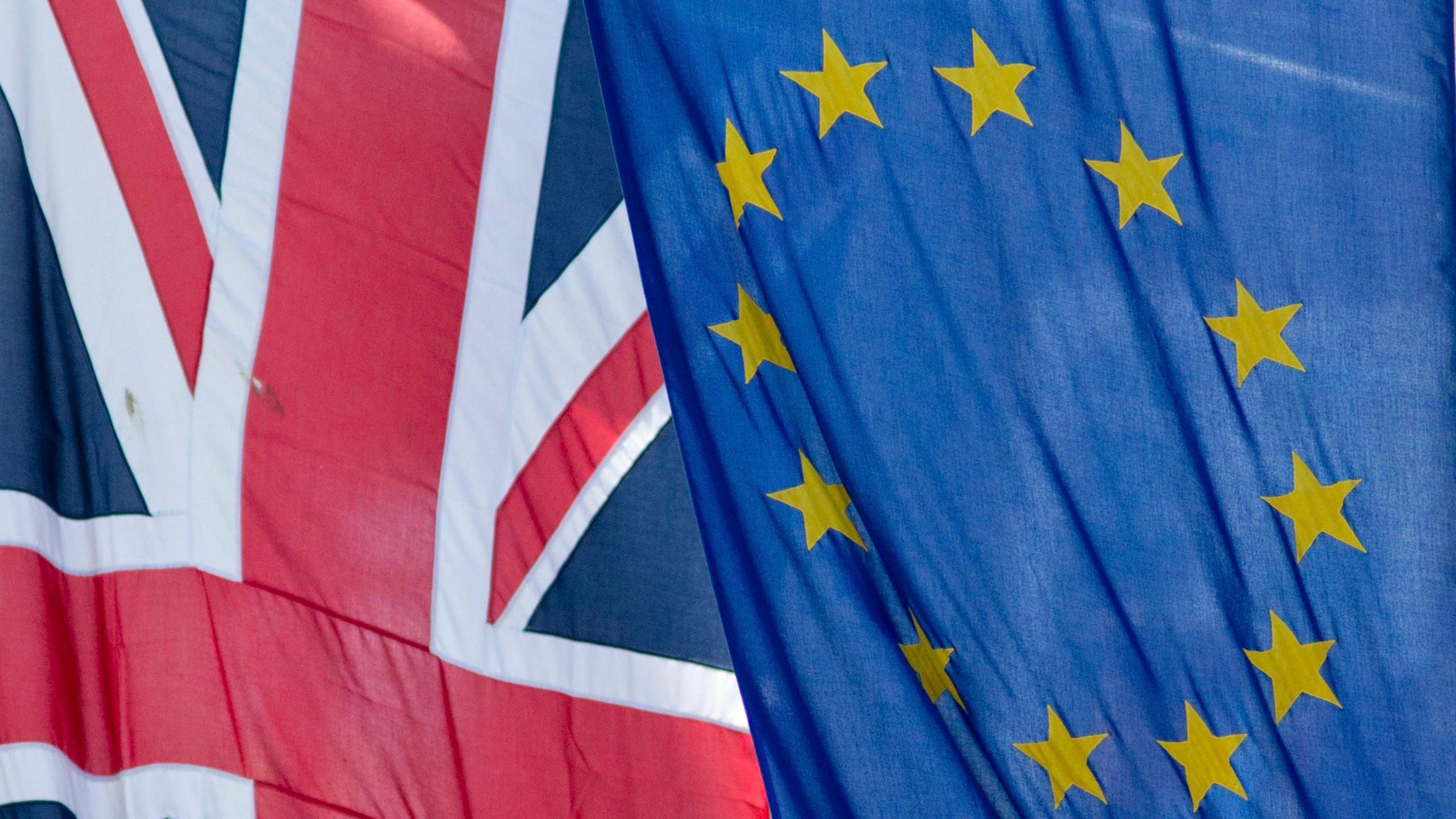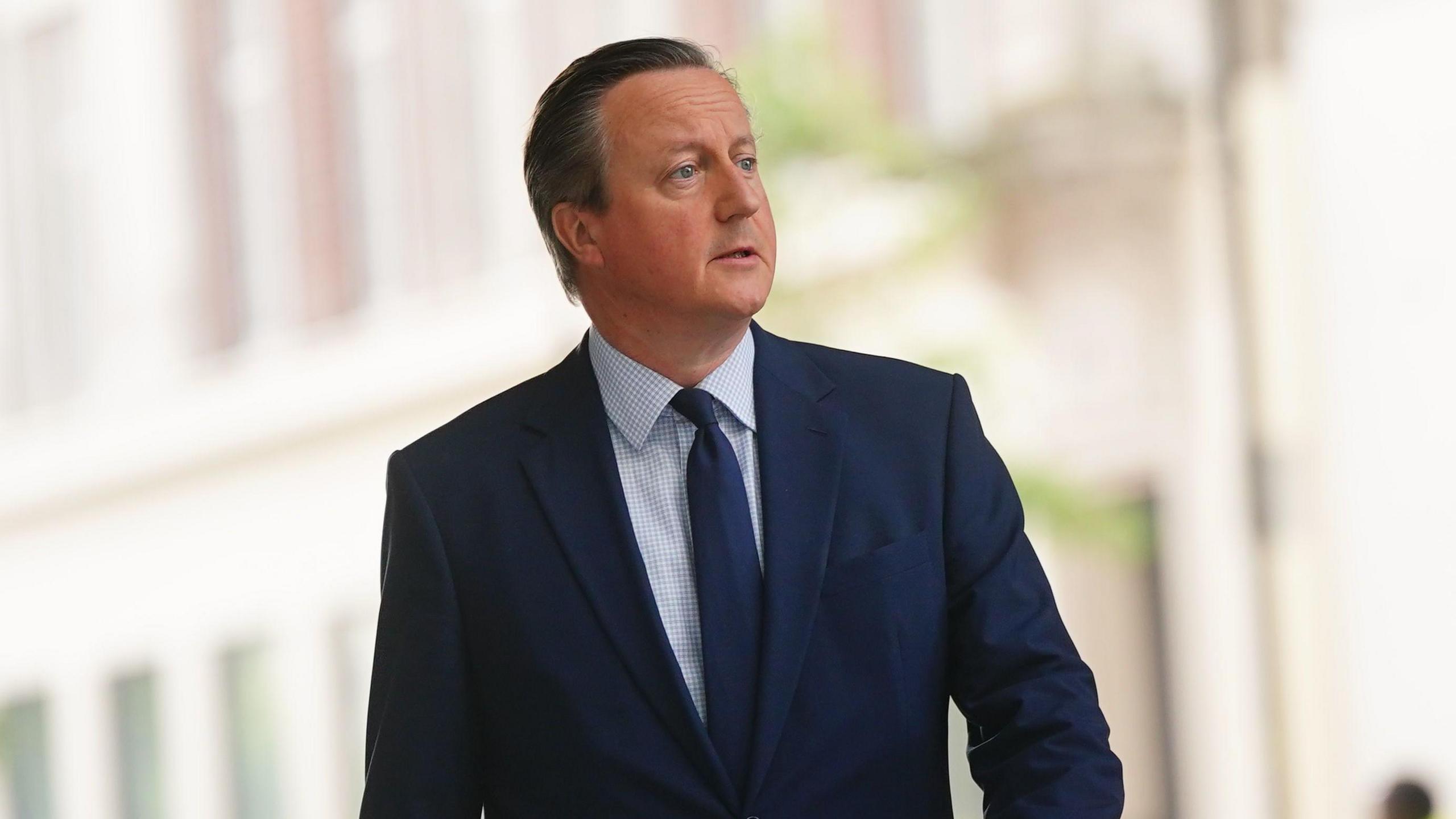Change allows tariff-free meat from down under

The change to the Windsor Framework means more tariff-free imports
- Published
The UK and EU have ratified a change to the Windsor Framework which allows NI businesses to make greater use of UK trade deals.
The change allows tariff-free imports of certain meat products from Australia and New Zealand.
The government says the deal addresses a post-Brexit problem where NI businesses importing higher-tariff meat products could not use the arrangements covering the rest of the UK.
It means more than 13,000 tons of lamb, beef, and poultry imports will now be covered by UK tariff rate quotas.
Tariffs are effectively trade taxes which are applied to imports of some goods.
A tariff rate quota means a certain amount of product can be imported tariff free every year while imports above that limit have tariffs applied.
Minister of State for Northern Ireland Steve Baker said it was a unique arrangement which would allow NI importers to benefit from UK free trade agreements.
He said this would "further cement Northern Ireland’s place in the UK".
The deal could mean greater choice for consumers and greater flexibility for meat processors, but would also mean increased competition for local producers.
Speaking to BBC Radio Ulster's Evening Extra programme on Thursday, Mr Baker said local farmers would face competition, but believed it was only right that “people should have choice”.
“I can think of at least one producer in Northern Ireland who would like to import Wagyu beef from New Zealand – that is not beef that is produced on the island of Ireland - it’s an important element for consumers to have that extra choice," he said.
“The arguments for free trade will always run, I‘m firmly on the free trade side of the argument but what I would say is that all these trade deals do include provisions which make sure that we don’t end up swamped with cheap produce."
The agreement was reached at a meeting of the Joint Committee, which oversee the implementation of the Windsor Framework.

Lord Cameron took part in the discussions
The delegations were led by Foreign Secretary Lord Cameron and European Commission Vice-President Maroš Šefčovič.
It’s understood the meeting also discussed a recent vote at the Stormont Assembly where a proposal to add a new EU law to the Windsor Framework failed to get cross community support.
The introduction of new EU laws under the Windsor Framework is ultimately a matter for the UK government.
However, if the assembly has not expressed cross-party support for the law, the government will normally veto it.
If the government vetoes the law the EU could ultimately take "appropriate remedial measures".
The veto will not be applied if the government assesses that the new law would not create a new regulatory border between GB and NI, or if exceptional circumstances apply.
It’s understood the two sides will do more work on this issue, which concerns a new EU law on the protection of geographical indications (GI) for craft and industrial products.
The UK is hoping to persuade the EU that existing measures will meet the intention of the new law.